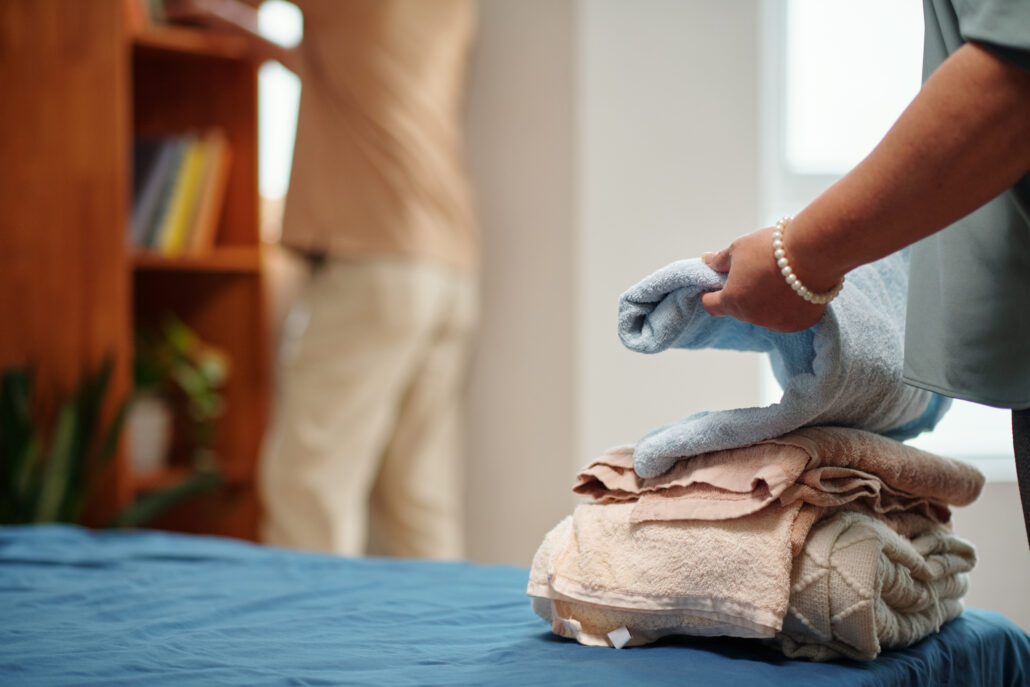There’s no doubt that sleep has an impact on your overall health and well-being – either for the good or the bad. There’s no better time than the present to make quality, restorative sleep a priority in your life and start seeing the positive impact. And speaking of the present, it just so happens that May is Better Sleep Month, and I am partnering with the Better Sleep Council (BSC) to help everyone get better in bed – as it relates to sleep, of course.
When I want to quiet my mind, unwind and snooze sounder, all I do is hit “play” and let the sweet sounds of my favorite music lull me to sleep.
Since ancient times, in regions all around the world, babies have been lulled to sleep with sweet, repetitive melodies known as lullabies. Soothing music is not just good for infants, it’s good for everyone. The slow tempo can help decrease the heart rate and, in turn, lower blood pressure – which is good, because a rapid heart rate can disturb sleep. Music has the power to calm the mind and reduce the effects of stress on the body. It can be relaxing, even hypnotic, putting us in the perfect state of mind to drift off into a deep sleep.

Studies have found that music with no defined melody and minimal fluctuations in volume is particularly good for helping you fall asleep. Instrumental music that is string-instrument based, with little or no horns and drums, can lower anxiety and bring on drowsiness. Classical music works great, as does New Age, Native American or Celtic music.
We’ve linked a few pieces you might want to add to your sleep playlist:
- The British Academy of Sound Therapy says that the most perfect song to put a person to sleep is called “Weightless.” The Academy collaborated with the Manchester band Marconi Union to produce this relaxing song. Because there is no repeated melody, the brain doesn’t try to predict the next sounds coming. According to research from Mindlab International, “Weightless” reduces anxiety by 65%. There is an 8-minute version, an extended 30-minute version, and a much longer 10-hour version. (YouTube video: https://youtu.be/UfcAVejslrU)
- “Reverie” is French for “dream,” and this classical piece was composed by Debussy early in his career. The beautiful piano sounds are gentle and meditative. (YouTube video: https://youtu.be/-SrvreW-E80)
- The first movement of Beethoven’s “Moonlight Sonata” is a masterful piece, hauntingly played on the piano. As the name suggests, this music is meant to be played at night, to soothe the soul after a long day. (YouTube video: https://youtu.be/nT7_IZPHHb0)
- This New Age music piece is specifically created to induce delta waves in the brain to help us ease into sleep. And it continues to play for 8 hours! (YouTube video: https://youtu.be/8gNWVYMa_Zc)
- Billy Joel wrote “Lullabye – (Goodnight, My Angel)” in 1993, inspired by his daughter. (YouTube video: https://youtu.be/dcnd55tLCv8)
- Sheryl Crow wrote this lullaby for her son Wyatt. (YouTube video: https://youtu.be/oHZi9qJsxvw)
- This relaxing Celtic music is played with harp and flute, and it’s dreamy and soothing. (YouTube video: https://youtu.be/BiqlZZddZEo)
- Two Native American flutes are featured on this instrumental piece composed by Peder B. Helland. (YouTube video: https://youtu.be/jO01kemz1kY)
While you’re deciding whether or not to add the soothing sounds of Celtic flutes to your playlist, consider that listening to soft music before sleep blocks out external noises, like traffic, and internal distractions, like tinnitus. The most important factor in finding music to help you sleep is to choose music that you like, that helps you to feel relaxed and comfortable.
Still experiencing restless nights? Check out my recent segment on CBS San Diego where I share my secrets to sleeping well. And make sure to sign up for the BSC’s monthly newsletter, The Snoozzze, for news you can sleep on, expert tips, the latest research and much more.
Sweet dreams!
Lissa
Can’t sleep? Try turning on some soft music that helps you feel relaxed and comfortable. It can also block out external noise, like traffic. #BSCSleepTips #bettersleep @BetterSleepOrg


